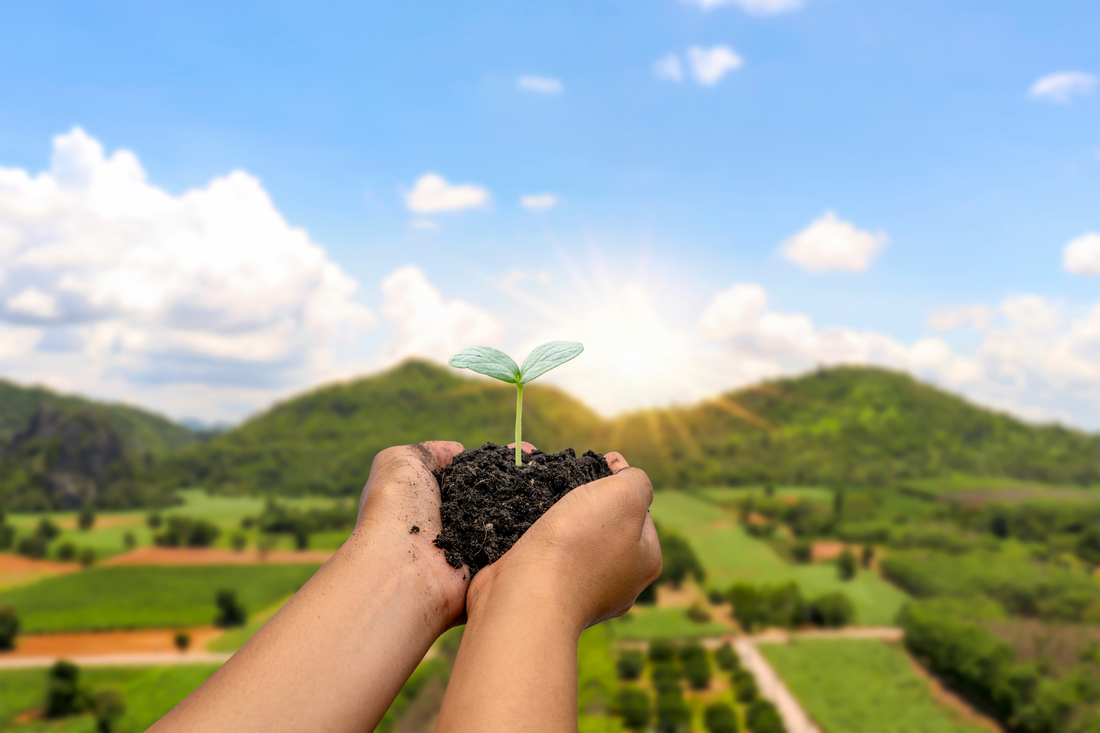
Sustainable Living: A New Year’s Resolution to Keep
Share
Sustainable Living: A New Year’s Resolution to Keep
The start of a new year almost always brings with it a list of resolutions we intend to keep and goals we hope to achieve. New year, new you, right?
While there’s no time like the new year for a fresh start, we’re all guilty of making ambitious resolutions and abandoning most of them come mid-January. This year, we came up with a New Year’s resolution you can actually keep: sustainable living.
Read on as we discuss some simple steps you can take to make 2023 your most sustainable and environmentally-friendly year yet. What’s more is that these tips will help you go green environmentally as well as financially!
Repurpose & Reuse.
Did you know: Canadians generate 31 million tonnes of garbage a year of which only about 30 percent is recycled? Repurposing and reusing items you already own is one of the easiest ways to adopt a more sustainable lifestyle. It’s a cost-effective practice that can reduce unnecessary expenses and cut down on household waste. Here are some things you probably have at home that can easily be repurposed and reused:
- Glass jars: Food items like pasta sauces and condiments often come in glass jars that can be upcycled and reused as pantry storage, drinkware or planters and vases.
- Plastic bags: If you have a collection of random plastic bags lying around, use them for your next grocery-shopping trip, as packing material to protect breakables or as garbage liners.
- Tea bags: Used tea bags can be rebrewed to water your plants and protect them from fungal infections. They can also be reused to remove odors, degrease dirty dishes and deter household pests. Isn’t that tea-rrific?
These are just a few examples of the many ways you can reuse common household items with little effort and no expense.

Compost or (re)Create.
A lot of the food we waste can either be composted or used to create new meals.
Meat bones make for great ingredients for homemade broth while coffee grounds, rich in nitrogen, are beneficial for seedlings and plants. Regrowing vegetables from food scraps is another great way to start your own little garden and save some money. Vegetables like celery, potato, carrots and others can be easily regrown by putting the scraps in water until roots start forming.
Once your home-grown vegetables are ready, use Hemp-Fresco™, a hemp-based food preservation product, to keep the produce fresher, longer. Made from renewable, eco-friendly Canadian hemp, Fresco pads slow the spoilage of fresh produce and drastically cut the amount of food you would otherwise have to throw away.

Although composting is the next best thing to reusing food scraps, it’s a habit that takes time to build and maintain. You can start slow by making sure to sort and segregate your garbage appropriately so that all organic waste goes to the compost. Try out this fun game to test your sorting knowledge.
A little effort goes a long way when it comes to adopting a more environmentally-friendly lifestyle. Sustainable living is a set of simple steps you can take in your everyday life for a better, greener and healthier earth and you.
We know what New Year’s resolution we’ll continue keeping in 2023. Join us!




